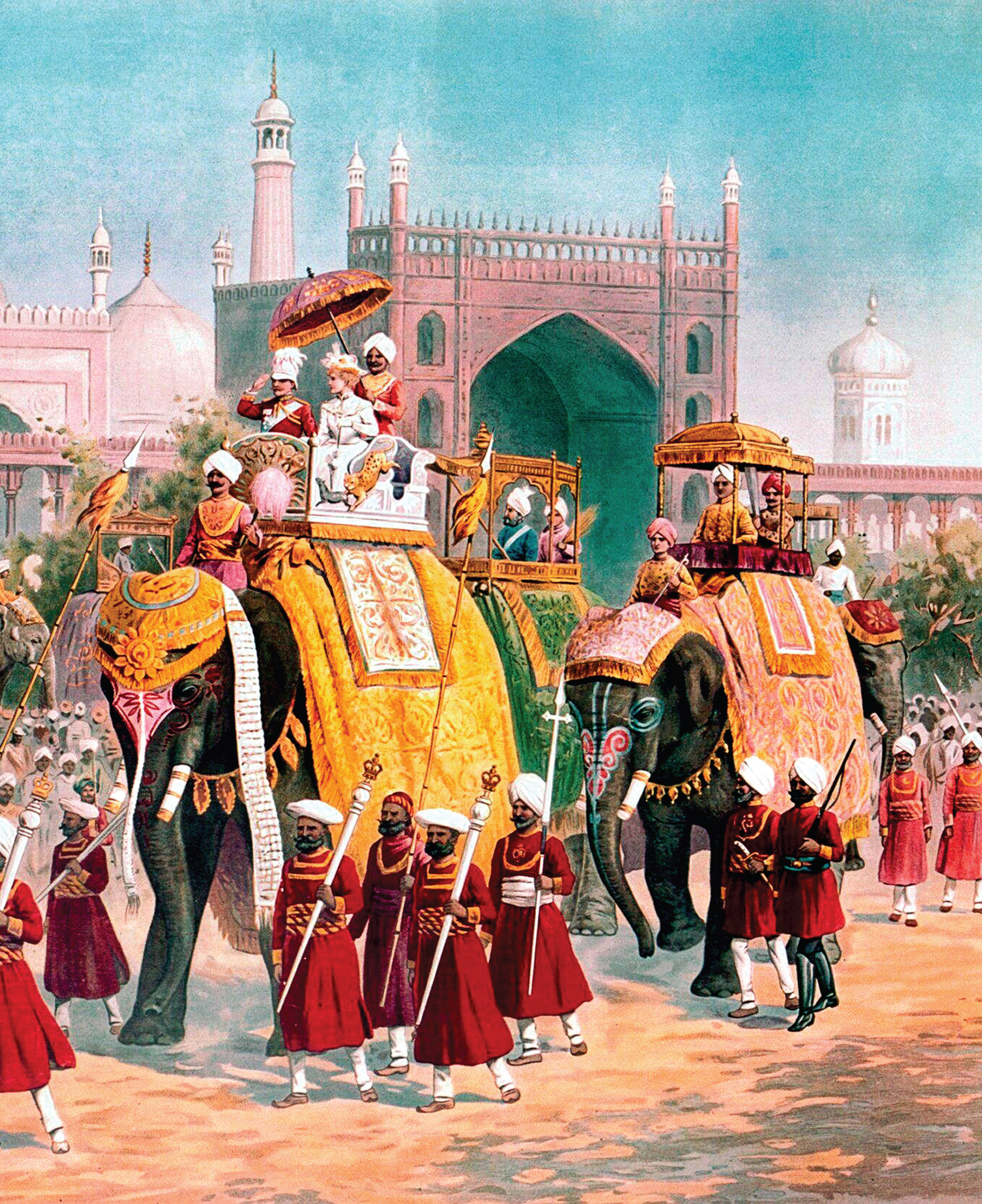Introduction
CHAPTER EIGHTEEN
Colonial Encounters in Asia and Africa
1750–1950

In mid-1967, I was on summer break from a teaching assignment with the Peace Corps in Ethiopia and was traveling with some friends in neighboring Kenya, just four years after that country had gained its independence from British colonial rule. The bus we were riding on broke down, and I found myself hitchhiking across Kenya, heading for Uganda. Soon I was picked up by a friendly Englishman, one of Kenya’s many European settlers who had stayed on after independence. At one point, he pulled off the road to show me a lovely view of Kenya’s famous Rift Valley, and we were approached by a group of boys selling baskets and other tourist items. They spoke to us in good English, but my British companion replied to them in Swahili. He later explained that Europeans generally did not speak English with the “natives.” I was puzzled, but reluctant to inquire further.
Several years later, while conducting research about British missionaries in Kenya in the early twentieth century, I found a clue about the origins of this man’s reluctance to speak his own language with Kenyans. It came in a letter from a missionary in which the writer argued against the teaching of English to Africans. Among his reasons were “the danger in which such a course would place our white women and girls” and “the danger of organizing against the government and Europeans.”1 Here, clearly displayed, was the European colonial insistence on maintaining distance and distinction between whites and blacks, for both sexual and political reasons. Such monitoring of racial boundaries was a central feature of many nineteenth- and early twentieth-century colonial societies and, in the case of my new British acquaintance, a practice that persisted even after the colonial era had ended.
SEEKING THE MAIN POINT
In what ways did colonial rule transform the societies that it encompassed?
FOR MANY MILLIONS OF AFRICANS AND ASIANS, COLONIAL RULE—by the British, French, Germans, Italians, Belgians, Portuguese, Russians, or Americans—was the major new element in their historical experience during the long nineteenth century (1750–1914). Of course, no single colonial experience characterized this vast region. Much depended on the cultures and prior history of various colonized people. Policies of the colonial powers sometimes differed sharply and changed over time. Men and women experienced the colonial era differently, as did traditional elites, Western-educated groups, artisans, peasant farmers, and migrant laborers. Furthermore, the varied actions and reactions of such people, despite their oppression and exploitation, shaped the colonial experience, perhaps as much as the policies, practices, and intentions of their temporary European rulers. All of them—colonizers and colonized alike—were caught up in the flood of change that accompanied this new burst of European imperialism.
A Map of Time
| 1750s | Beginnings of British takeover of India |
| 1788 | Initial British settlement of Australia |
| 1798 | Napoleon’s invasion of Egypt |
| 1830 | French invasion of Algeria |
| 1840s | Beginning of major British settlement in New Zealand |
| 1857–1858 | Indian Mutiny and rebellion |
| 1858–1893 | French conquest of Indochina |
| 1869 | Opening of Suez Canal |
| 1875–1914 | Scramble for Africa |
| 1898 | United States acquires the Philippines from Spain and annexes Hawaii |
| 1899–1902 | Boer War in South Africa |
| 1901–1910 | Completion of Dutch conquest of Indonesia |
| 1904–1905 | Maji Maji rebellion in East Africa |
| 1910 | Japan annexes Korea |
| Twentieth century | Spread of Christianity in non-Muslim Africa |
| 1920s–1947 | Gandhi’s leadership of Indian National Congress |